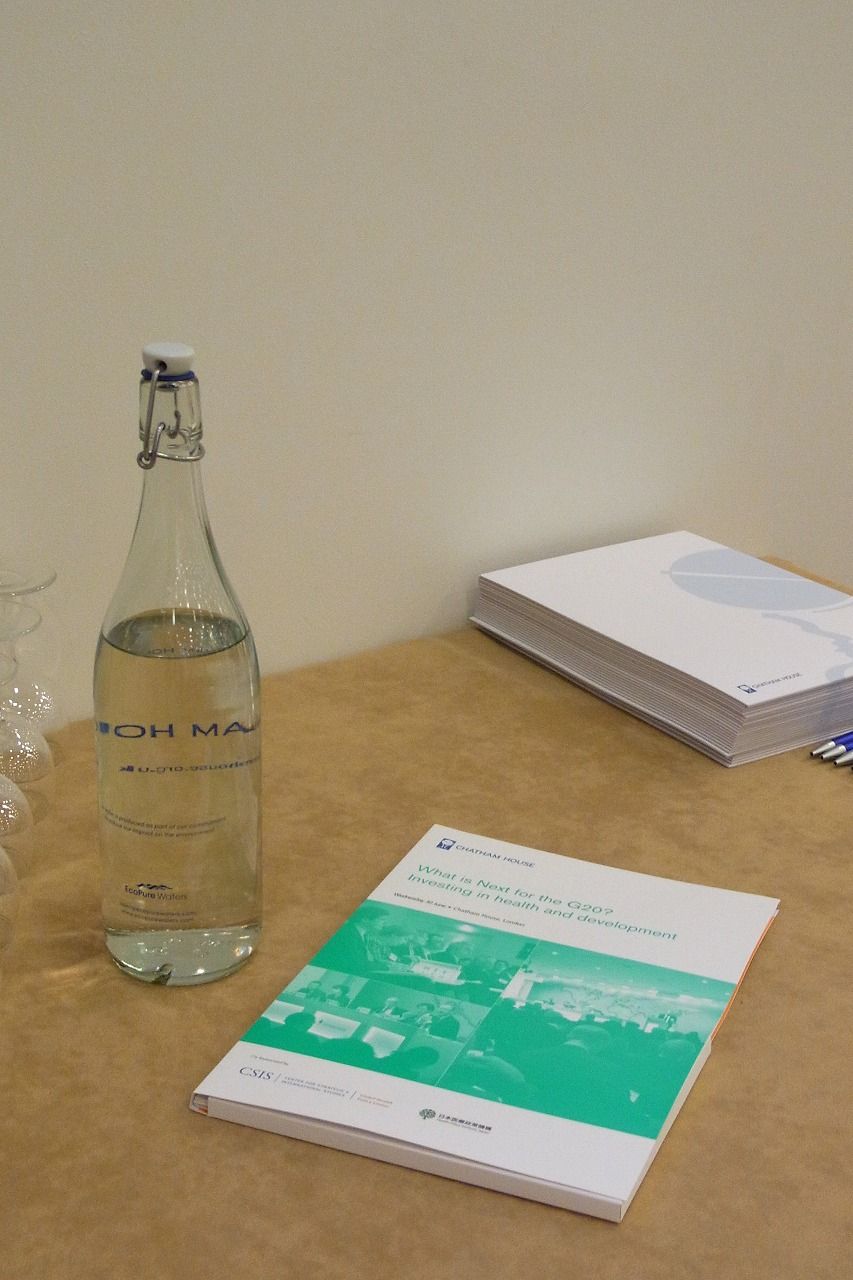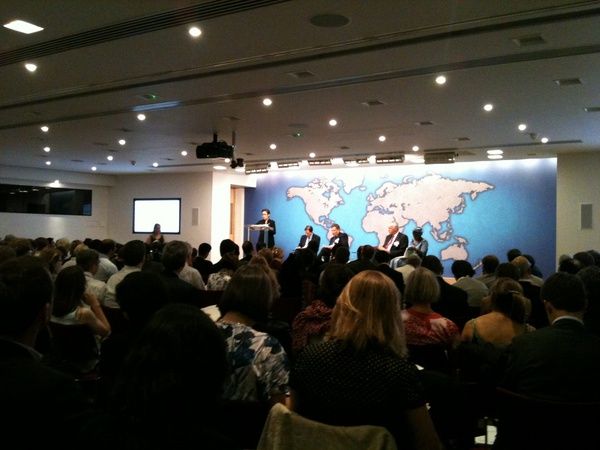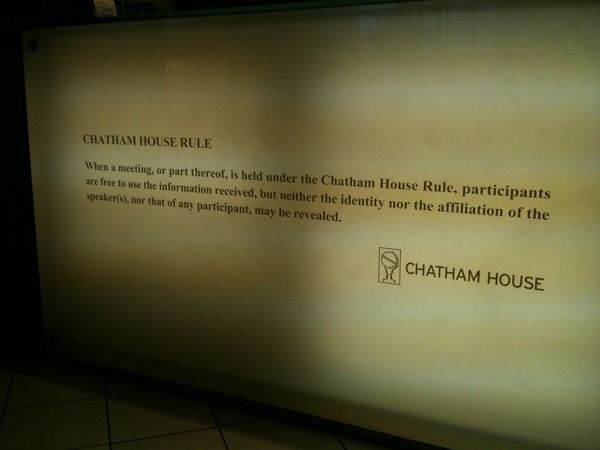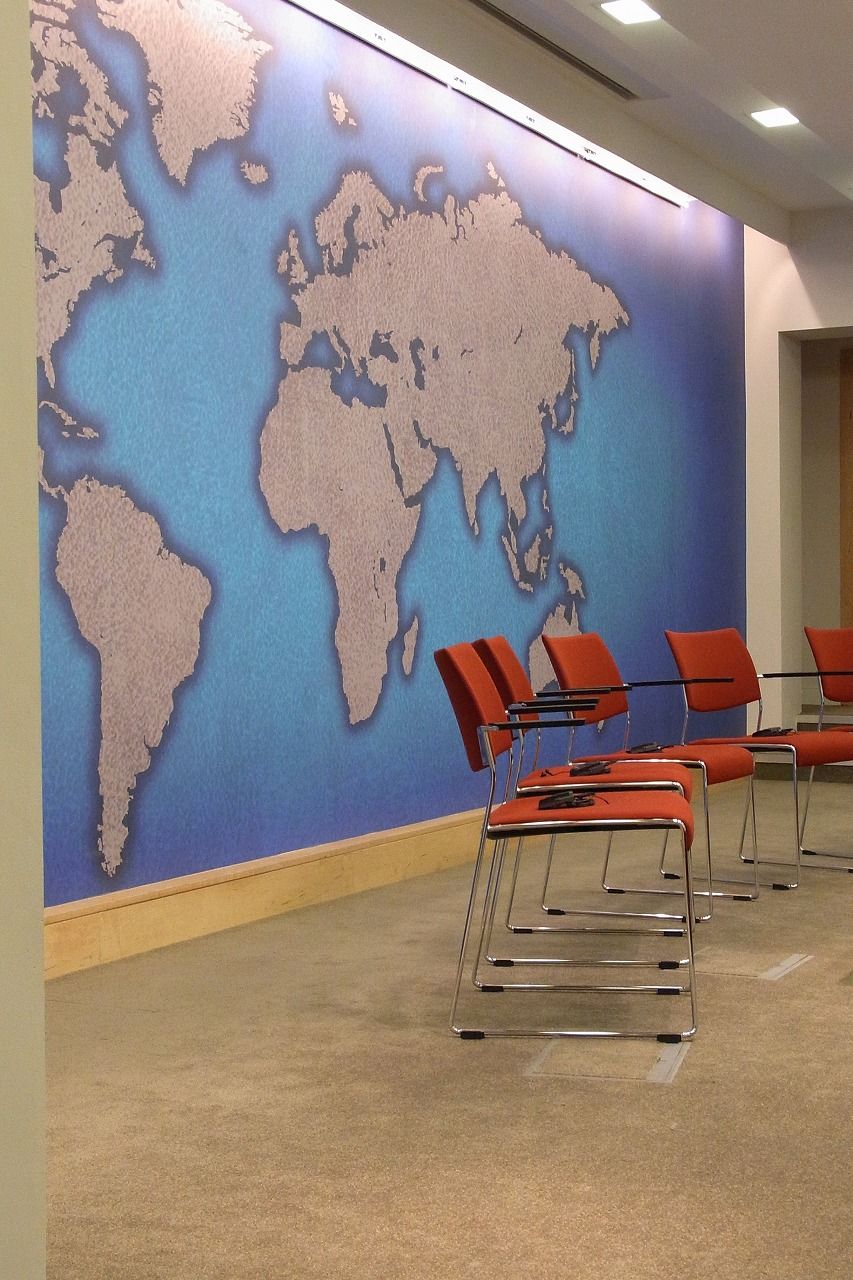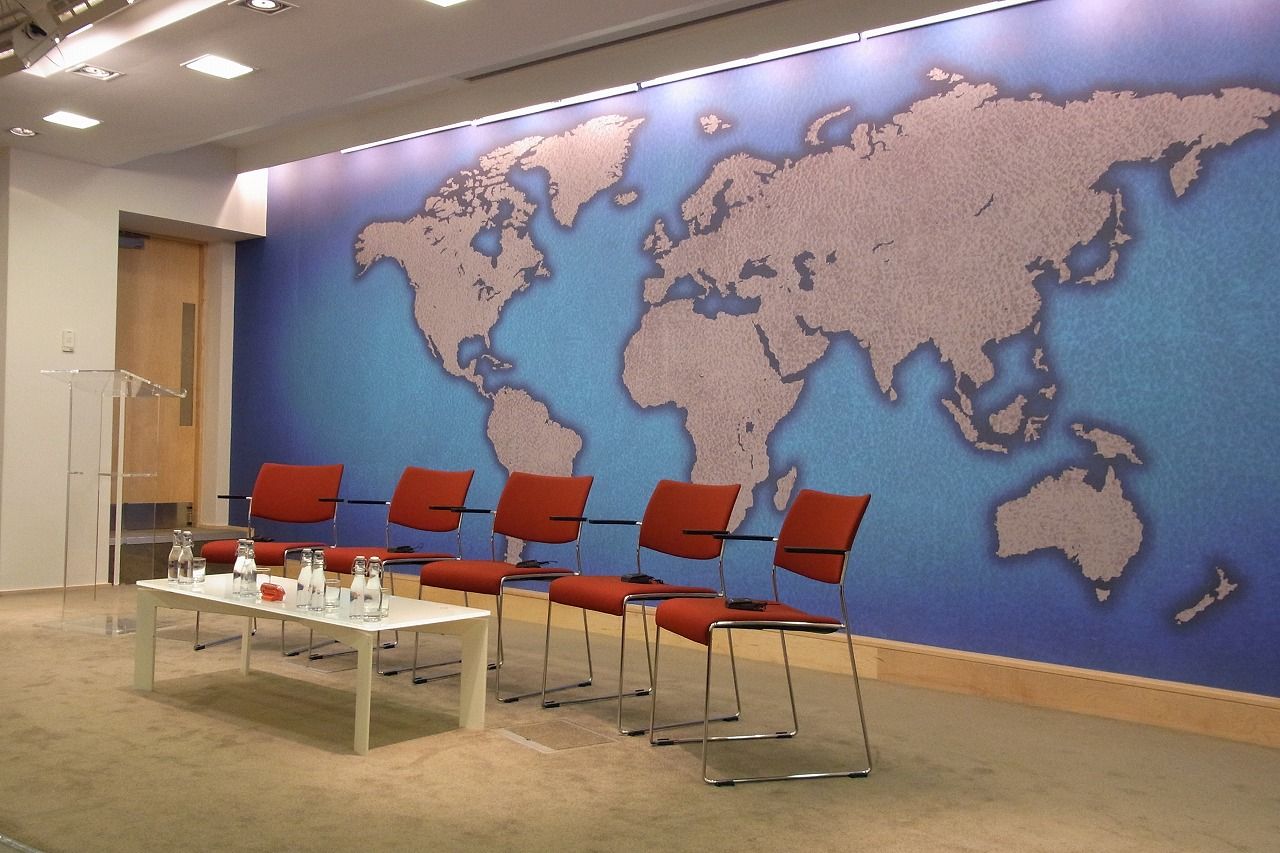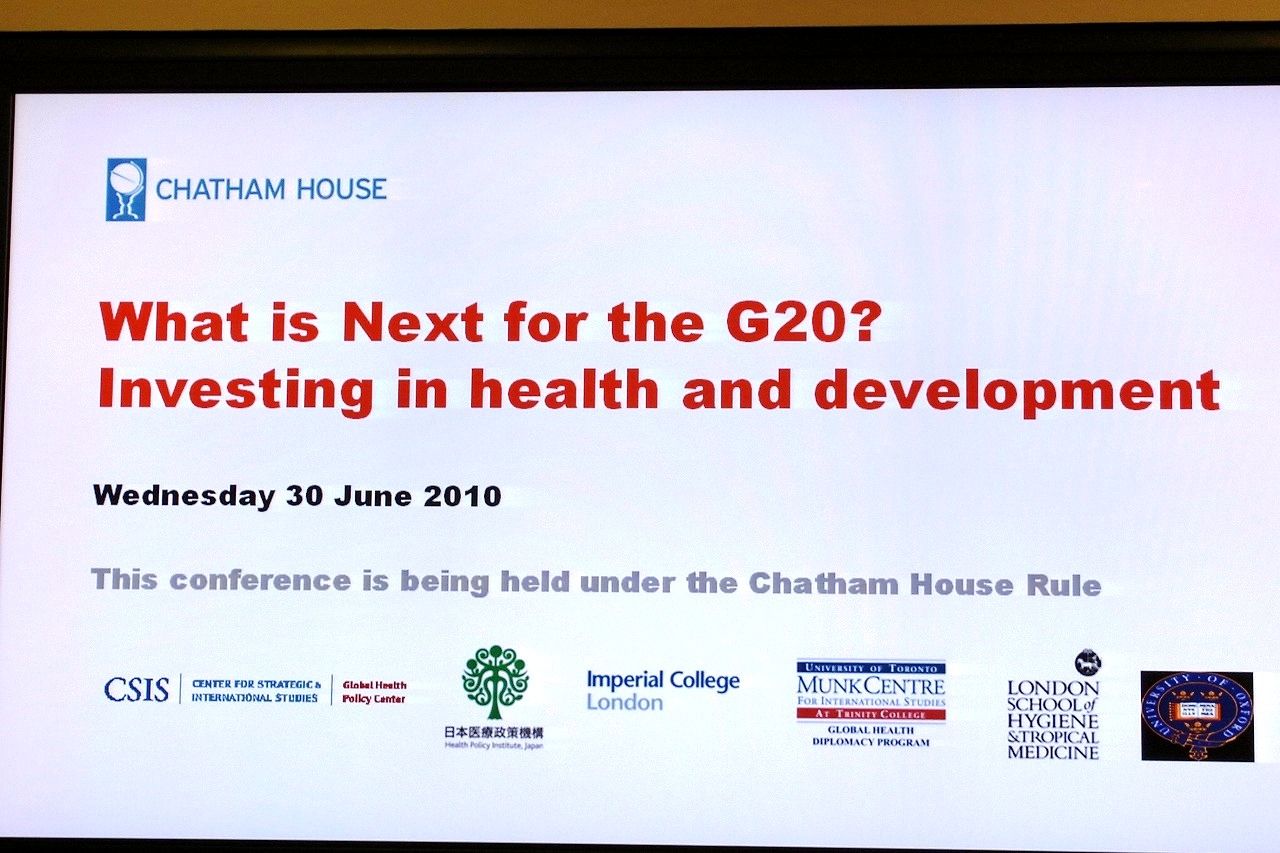Photos by the courtesy of NHK Asian Voice and HPI-Japan
Chatham House in London is more formally known as The Royal Institute of International Affairs, one of the world’s top Think Tanks on international issues, a place for debates, famous also for the rule often referred to as the ‘Chatham House Rule’
This Chatham House, CSIS, an American Think Tank in Washington DC (Ref.1), and our Health Policy Institute Japan have spent about a year preparing for this meeting at the Chatham House which was held on June 30. The meeting was scheduled at the timing of the G8 Summit in Canada that took place a few days earlier, and the theme of the meeting was ‘Global Health: What’s next for the G20? Investing in health and development’.
Its agenda, panel speakers, and sponsors were all superb. I understand that the total number of participants was around 200. Dr. Shigeru Omi (in Japanese), former regional director of WHO Western Pacific Regional Office, represented the government of Japan. Also, some Japanese officials in London were present including Minister Oka of Japan Embassy, from JETRO, and NHK crew came to report this meeting. I would like to extend my sincere thanks to them all.
Now and in the future, such process of independent Think Tanks or other non-governmental institutions hosting and organizing conferences to set global agendas to lead discussions that in the end can come up with some overall understandings or agreements is and will be extremely important. Organizing and participating in such conferences have been a very good experience to us, too. I myself was honored to have a role of listening to the discussions of the day and wrapping them up in the closing. We also tried to make clear what we could do with the outcomes of this meeting, or what our next steps could be.
These things are easy to say, but actually to reach to this point was truly a tough task. I did write several postings on this process in this site (Ref.1, 2, 3) in addition to the reports which are posted on the web site of the Health Policy Institute, Japan. Most importantly, we must understand that in the global world, building ‘personal’ credibility/trusts’ amongst ‘colleagues of the world’ is the basis of everything.
It seems to me that one of the fundamental problems of Japan lies in the conventional attitude of the majority of the Japanese people who think that those global issues must be handled by ministries in charge, i.e. government offices or bureaucrats, or big companies if talking about industry. In other words, our society is not yet mature enough as the ‘Civil Society’ – at least in my view.
So, let us all together nurture as many human resources and capitals as possible who are capable of taking actions based on the deep understanding of the importance of actions by independent individuals who do not necessarily rely on ‘governmental authorities’, as well as the importance of development of mutual trusts in individual levels, particularly in this ‘global’ and ‘flat’ world.
